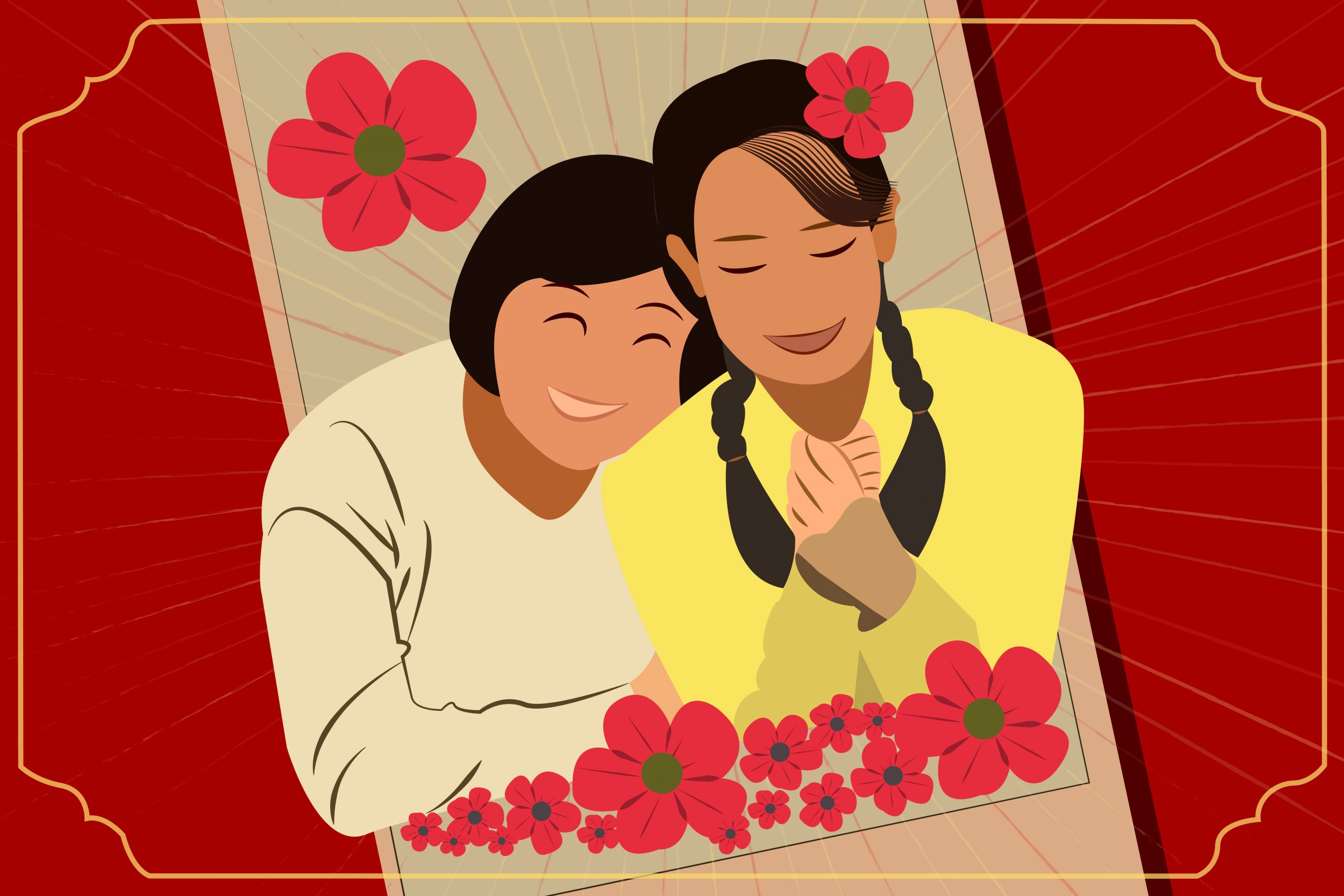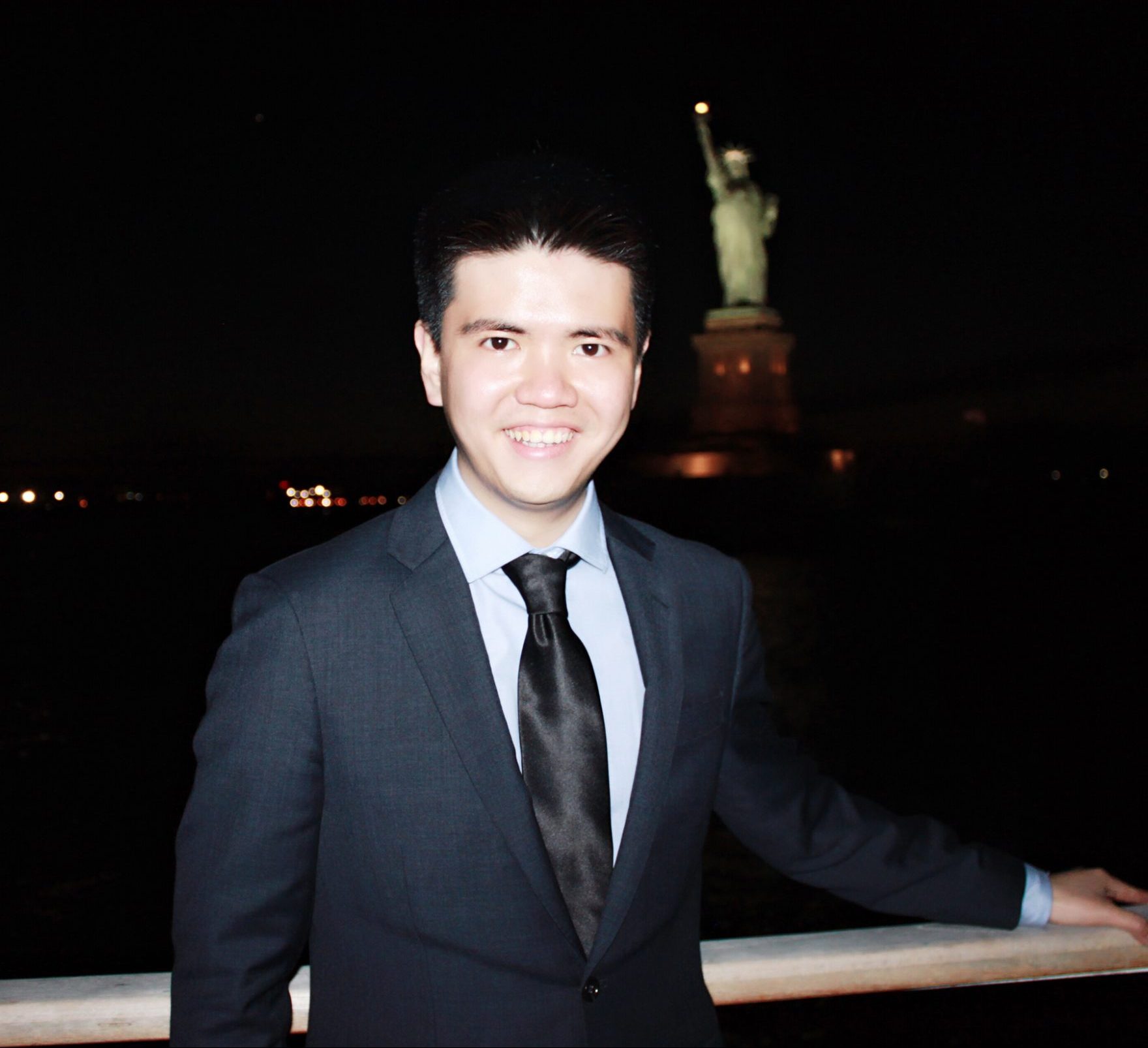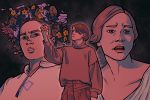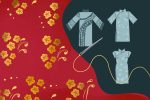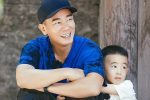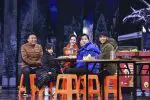Imagine that time machines are now available and you had the ability to travel back to a point in time when you could meet a younger version of your mom. How would you proceed? Would you reveal who you are, or would you pretend to be a stranger and try to build a new relationship with her? The 2021 film “Hi, Mom” tells this exact story: A daughter time travels to the year before she was born in order to meet her mom.
The film takes place in 2001. Always harboring the desire to live up to her mother’s expectations, Ling, the film’s main character, fakes an admissions letter from the best acting school in China. As they head home after a large celebratory dinner with several tables full of relatives who herald Ling’s “success,” both Ling and her mother Huanying are hit by a truck. Ling survives the accident, but Huanying ultimately succumbs to the injuries she sustains, placing Ling in the unthinkable position of having to watch her mother die.
While Ling is crying over her mom’s body, which lies silently in bed, she suddenly travels back in time nearly 20 years and meets Huanying when she was in her 20s. This magical encounter confuses both mother and daughter, so Ling decides to pretend to be Huanying’s cousin and claims that she met her when they were both much younger.
Afterward, the family roles of Huanying and Ling seem to swap. Ling starts to become concerned about the important events and choices in Huanying’s life and strives to change the course of her own mom’s life for the better.
For example, Ling remembers that Huanying said she would have been much happier in life if she had joined her school’s volleyball team decades ago. Ling urges Huanying to join the team and play in a particularly important volleyball game. Huanying hesitates, but at Ling’s insistence, she decides to play. She doesn’t win, but her competitive spirit and drive to never give up impress the head of her company, which results in the head’s invitation to date his son, who is wealthy and lives a decent life.
However, Huanying ultimately goes out with the man who will become Ling’s father and decides to marry him, which Ling strongly opposes, as she wants her mother to have a better life than Ling believes she has. At the end of the movie, the final twist is revealed: Huanying actually traveled back in time with Ling and was pretending to not know anything the whole time.
If you asked me to choose one phrase to summarize the whole film, I would say it is “intensely emotional.” Though the soundtrack of “Hi, Mom” is full of relaxing music and humorous, entertaining scenes, the deep mother-daughter bond and the love that Ling and Huanying clearly have for each other are so poignant. This is especially apparent after Ling sees her mom’s body lying prone in a hospital bed; to prevent this from happening, Ling wants to exhaust all possible means just to make her mom happy, even attempting to change the entire trajectory of her mom’s life at the expense of her own.
One of the questions Ling asks herself is, “If I were not born, would my mom have lived a happier life?” She is willing to abandon her life for the sake of her mom’s happiness. Ling’s love for Huanying peaks at the end of “Hi, Mom” when Ling sees flashbacks of her mother taking care of her as she grew up. She discovers small sacrifices that she was previously unaware of, such as Huanying failing to follow Ling’s suggestion to take a bus on a snowy day and instead secretly returning the bus ticket in order to save money.
“Hi, Mom” is filled with details that touch the depths of the audience’s hearts. For example, when Huanying hears Ling enthusiastically introducing her as “the first person to have a television in the factory,” Huanying couldn’t help but cry tears of joy. Similarly, when Huanying carries Ling on her back when her daughter was still small, she says that she wants to be Ling’s mom again in her next life.
In addition to the immersive emotional atmosphere, “Hi, Mom” also provides the audience with opportunities to learn about Chinese culture now versus 20 years ago. The scenes after Ling travels back in time are filled with the symbols of the ‘80s in China: televisions, collective and centralized factories and radios. The near-perfect simulation of these cultural components enhances the authenticity of such an immersive experience.
The audience can also observe the role of education in Chinese society and the relationship style between parents and their kids. Young people are expected by the community to gain admission to the most top-notch colleges, and such success is a significant factor that determines a student’s value and even the perception that the surrounding community has of his or her family. The worth of an individual is closely tied to his or her community; thus, the external pressure is undeniably high. This serves as the rationale that justifies Ling’s fake admission letter, which she thinks will maximize her mom’s happiness.
This film poses two critical questions to its audience: how would you act differently if you realized your loved one was about to pass away, as well as what is love and how should we express it to the ones we care about?
I have seen a lot of comments on different Chinese social media channels with messages like, “If you didn’t cry at the end of the movie, you must be a heartless person.” After watching “Hi, Mom,” I have to say — I totally agree, and I’m sure you’ll have the same answer after you check it out, too.


